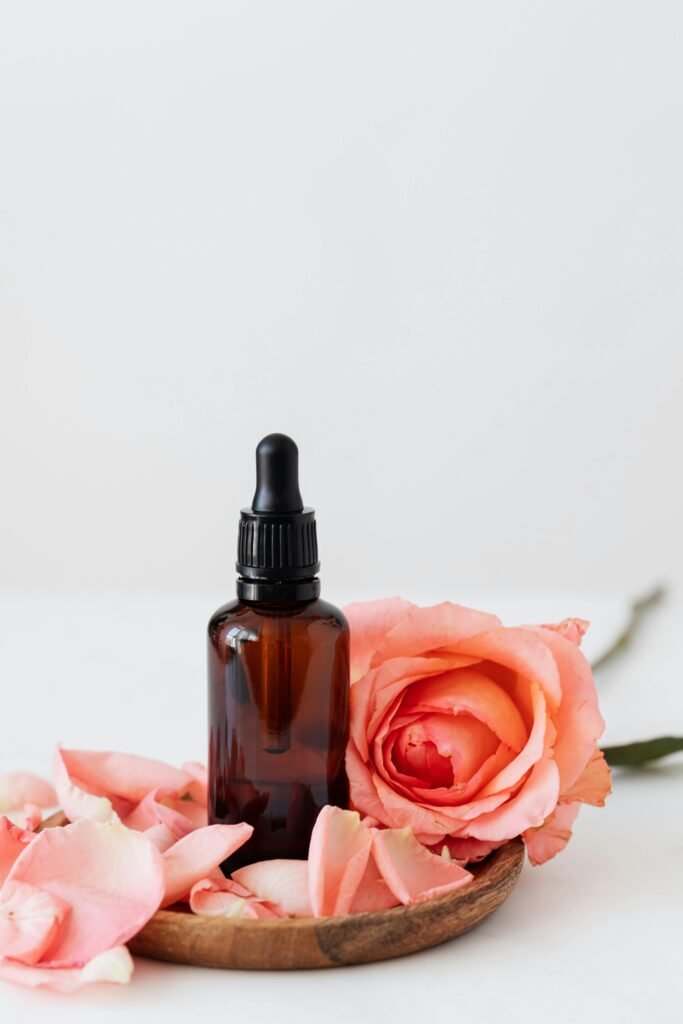Say goodbye to bad breath once and for all with the amazing properties of clove oil. Clove oil has been long known for its antibacterial and antiseptic qualities, making it the perfect natural remedy for freshening your breath. Simply add a drop of clove oil to water and use it as a mouthwash, or mix it with carrier oil and apply it to your gums for long-lasting results. Say hello to fresh breath and a healthier mouth with this simple and effective solution. Hey there! Ready to say goodbye to bad breath once and for all? Clove oil might just be the solution you’ve been looking for. Let’s dive in and discover how this natural remedy can help freshen your breath and boost your overall oral health.
What Causes Bad Breath?
Have you ever wondered what causes bad breath in the first place? It’s a common problem that can be embarrassing and frustrating. Bad breath, also known as halitosis, can be caused by a variety of factors, including poor oral hygiene, certain foods and drinks, smoking, dry mouth, and underlying medical conditions. It’s important to address the root cause of bad breath in order to effectively treat it.
Poor Oral Hygiene
One of the most common causes of bad breath is poor oral hygiene. When you don’t brush and floss regularly, food particles can get stuck in your teeth and gums, leading to the growth of bacteria that produce foul-smelling compounds. It’s important to brush your teeth at least twice a day and floss daily to remove plaque and food debris.
Foods and Drinks
Certain foods and drinks, such as garlic, onions, coffee, and alcohol, can contribute to bad breath. These odors can linger in your mouth long after you’ve finished eating or drinking them. If you notice that certain foods or drinks tend to give you bad breath, try to limit your intake and drink plenty of water to help wash away odor-causing particles.
Smoking
Smoking is not only harmful to your overall health, but it can also cause bad breath. The chemicals in tobacco products can linger in your mouth and lungs, leading to an unpleasant odor. If you’re a smoker, quitting can not only improve your breath but also your overall well-being.
Dry Mouth
Saliva plays a crucial role in keeping your mouth clean and moist. When you have a dry mouth, also known as xerostomia, bacteria are more likely to thrive and produce foul-smelling compounds. Certain medications, medical conditions, and dehydration can contribute to dry mouth. Drinking plenty of water, chewing sugar-free gum, and using a humidifier can help alleviate dry mouth and improve bad breath.
Underlying Medical Conditions
In some cases, bad breath may be a symptom of an underlying medical condition, such as respiratory infections, sinus problems, diabetes, liver or kidney disease, acid reflux, or gastrointestinal issues. If you have chronic bad breath that doesn’t improve with proper oral hygiene and lifestyle changes, it’s important to consult with your healthcare provider to rule out any serious health issues.
How Clove Oil Can Help
Now that we’ve covered some of the common causes of bad breath, let’s explore how clove oil can help freshen your breath and promote better oral health. Clove oil is derived from the dried flower buds of the clove tree (Syzygium aromaticum) and has been used for centuries in traditional medicine for its antimicrobial, antifungal, and antioxidant properties. Here are some ways in which clove oil can benefit your oral health:
Antimicrobial Properties
Clove oil contains eugenol, a powerful antimicrobial compound that can help kill bacteria and fungi that cause bad breath and other oral health issues. By using clove oil as part of your oral care routine, you can reduce the levels of harmful bacteria in your mouth and freshen your breath naturally.
Anti-Inflammatory Effects
In addition to its antimicrobial properties, clove oil also has anti-inflammatory effects that can help reduce inflammation in the mouth and gums. Inflammation is often a sign of infection or irritation, so using clove oil can help soothe your gums and promote healing in the oral tissues.
Analgesic Benefits
Clove oil has analgesic properties, meaning it can help relieve pain and discomfort in the mouth and gums. If you’re experiencing toothache, gum pain, or other oral discomfort, applying clove oil topically can provide temporary relief until you can see your dentist.
Fresh Breath
One of the most noticeable benefits of using clove oil is its ability to freshen your breath naturally. The antimicrobial compounds in clove oil help kill odor-causing bacteria in your mouth, leaving you with a clean, fresh breath that lasts. Say goodbye to bad breath and hello to confidence with clove oil!
Toothache Relief
Clove oil is commonly used as a natural remedy for toothaches due to its numbing and pain-relieving properties. If you’re suffering from a toothache, applying a small amount of clove oil to the affected area can help alleviate pain and discomfort until you can seek professional dental care.
Oral Health Benefits
In addition to freshening your breath and relieving toothaches, clove oil offers a range of oral health benefits, including fighting tooth decay, reducing gum disease, and promoting overall oral hygiene. By incorporating clove oil into your daily oral care routine, you can maintain a healthy mouth and smile.

This image is property of images.pexels.com.
How to Use Clove Oil for Bad Breath Relief
Now that you know the benefits of clove oil for oral health, let’s explore how you can use this natural remedy to combat bad breath effectively. Clove oil can be used in various ways to freshen your breath and improve your overall oral hygiene. Here are some simple and effective methods for using clove oil:
Clove Oil Mouthwash
You can make your own clove oil mouthwash by combining a few drops of clove oil with water. Swish the mixture in your mouth for 30-60 seconds, then spit it out. Clove oil mouthwash can help kill odor-causing bacteria in your mouth and leave your breath smelling fresh.
Clove Oil Toothpaste
Add a drop of clove oil to your toothpaste before brushing your teeth. The antimicrobial properties of clove oil can help fight plaque and bacteria that cause bad breath and other oral health issues. Brush your teeth as usual and enjoy the refreshing benefits of clove oil.
Clove Oil Gargle
Mix a few drops of clove oil with warm water to create a gargling solution. Gargle with the mixture for 30 seconds to 1 minute, then spit it out. Clove oil gargle can help reduce bacteria in the throat and mouth, freshening your breath and promoting a clean oral environment.
Clove Oil Topical Application
If you’re experiencing toothache or gum pain, you can apply a small amount of clove oil directly to the affected area using a cotton swab. The analgesic properties of clove oil can help numb the pain and provide temporary relief until you can see your dentist.
Clove Oil Oral Rinse
Combine a few drops of clove oil with coconut oil or another carrier oil to create an oral rinse. Swish the mixture in your mouth for 5-10 minutes, then spit it out. Clove oil oral rinse can help reduce plaque, fight bacteria, and freshen your breath naturally.
Safety Precautions and Tips
While clove oil is generally safe for most people when used properly, there are some precautions and tips to keep in mind to ensure a positive experience and avoid potential side effects. Here are some safety precautions and tips for using clove oil:
Dilution
Clove oil is highly concentrated and can be irritating to the skin and mucous membranes if used undiluted. Always dilute clove oil with a carrier oil, such as coconut oil or olive oil, before applying it to your skin or mouth.
Patch Test
Before using clove oil topically, perform a patch test on a small area of your skin to check for any allergic reactions or sensitivities. If you experience redness, itching, or irritation, discontinue use and consult with your healthcare provider.
Avoid Ingestion
While clove oil is safe for oral use in small amounts, it should not be ingested in large quantities. Swallowing clove oil can cause nausea, vomiting, and other gastrointestinal issues. Always follow the recommended guidelines for oral use.
Consult with a Professional
If you have any underlying medical conditions, allergies, or sensitivities, consult with your healthcare provider before using clove oil for oral care. They can provide guidance on whether clove oil is safe and appropriate for your individual needs.
Store Properly
Clove oil should be stored in a cool, dark place away from direct sunlight and heat to preserve its potency and effectiveness. Make sure to keep the bottle tightly sealed and out of reach of children and pets.
Use with Caution
Exercise caution when using clove oil around children, pregnant or nursing women, and individuals with sensitive skin or medical conditions. Always follow the recommended guidelines for use and seek professional advice if needed.

This image is property of images.pexels.com.
Final Thoughts
Say goodbye to bad breath with the natural power of clove oil! By incorporating this versatile remedy into your oral care routine, you can enjoy fresh breath, healthy gums, and overall improved oral health. Remember to practice good oral hygiene, eat a balanced diet, and stay hydrated to maintain a clean and healthy mouth. With the help of clove oil, you can confidently say hello to a brighter smile and fresher breath every day. Cheers to fresh breath and happy smiles!
